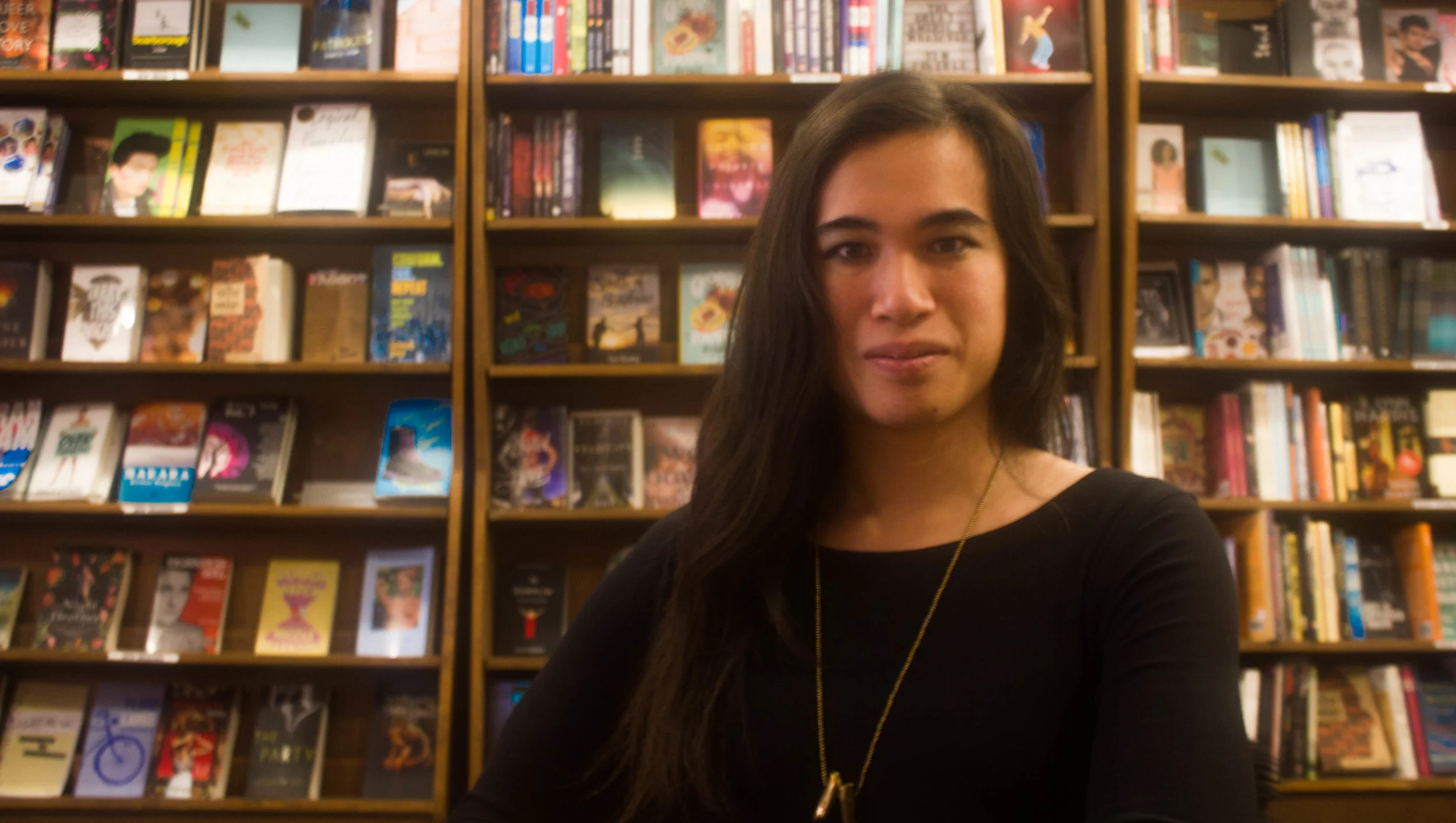I first saw Kai Cheng Thom read and perform at Trans Girl Supernova, a poetry reading and book launch hosted by the Venus Envy sex shop and bookstore in Kjipuktuk (Halifax, Nova Scotia). She performed a piece from her most recent book of poetry titled A Place Called No Homeland; her performance was large and tender and sharp and magnificent. I wasn’t the only audience member left sobbing from the gorgeousness of her words and movement.
Kai Cheng is a second generation Chinese Canadian writer, performance artist, and social worker. She is the author of the novel Fierce Femmes and Notorious Liars: A Dangerous Trans Girl's Confabulous Memoir, poetry collection A Place Called No Homeland, and children’s book From the Stars in the Sky to the Fish in the Sea. She is also a graceful and generous person who met with me during her lunch break on Thursday. We chatted over tea at Glad Day Bookshop, a queer bookshop on Church Street in Toronto, Ontario. We talked about queer literature, faith, her job as a social worker, and beauty. And she moved with a serene confidence (something I believe comes only from knowing oneself) while I photographed her.
Kai Cheng, please tell me about your name?
My name is Chinese. My grandparents gave it to me when I was born, as is traditional. I have an English name too, but I stopped using it after my grandparents died - they used to be the only people who used my Chinese name, and I didn't want it to die with them.
What would you name yourself, and why?
I would name myself after a fairy tale princess! I'm obsessed with fairy tales, and with magical women.
Fierce Femmes and Notorious Liars: A Dangerous Trans Girl's Confabulous Memoir was piercing, and magical, and just straight up victorious, can you tell me about the landscape or the architecture of your imagination when you wrote that?
Thank you, that's so kind! The first draft of Fierce Femmes was written in two feverish weeks by the sea. (I later edited it for a year.) I was in Halifax for a writing residency, and I had just had my first poetry book manuscript totally trashed by a white lady editor from a publishing company in New York - she literally mailed me two white women's books and asked me to write more like them. So I was full of fresh rage and anxiety to prove to myself that I could tell a story in my own way. More globally, like many QTBIPOC youth activists from Montreal at the time, I was recovering from the aftermath of the 2012 student strike, a movement that a lot of Americans haven't heard about that involved hundreds of thousands of protesting students shutting down the Quebec government. A whole generation of activists was forged in the fire of that movement - and a whole lot of us burned out, too. As in any revolutionary movement, there were a lot of intense conversations among us about what tactics were "acceptable" protest (ie violent vs peaceful) and whose voices were really being centred (i.e. white people vs PoC). I was really ready to explore the power and limitations of violence as a liberatory tactic. The final piece that went into the architecture of my imagination (what a great phrase!) when I was writing the book was quite a few experiences of intra-community violence within queer and trans community that broke my heart. I was facing the reality that queers hurt each other, that queers had hurt me, that I had hurt others.
You wrote about trauma in such visceral yet redeeming way in Fierce Femmes, can you please tall me about the choices you make around writing trauma?
Trauma is a central theme in my life, as it is for many marginalized individuals and communities. There is a lot of wisdom and power in trauma and telling trauma stories - but I also have come to despise the fetishization of trauma that I see happening in activist scenes. Sometimes, it feels like there is a lot of pressure to disclose every gory detail of our personal traumas in order to be considered important, worthy of being listened to, or even worthy of compassion. I hate having to use the phrase "as a survivor..." to be taken seriously in a conversation! I don't think anyone should have to tell their trauma story for anyone else's gratification. But, of course, trauma calls out to be spoken. So in writing Fierce Femmes, I tried to find a way to convey the intensity and complexity of trauma while also refusing to adhere to classic "survivor" narratives or gratuitously graphic descriptions. In particular, there is a scene where the narrator is attacked by a swarm of killer bees that come to live inside her body. Quite a few folks have asked me if this is a metaphor for sexual assault or trauma - and my response to that is it is whatever the reader needs it to be.
Tell me about mermaids!
I LOVE MERMAIDS. They are such monstrous, unnatural creatures that are full of watery elemental power, just like me! I particularly love mermaid depictions that embrace the full weirdness, ferocity, and sexuality that it must take to live as a maiden of the ocean depths. Like, if you were really a mermaid, you wouldn't float around looking like a supermodel with perfect hair all the time. You would have to withstand enormous water pressure, you would have to compete with sharks and other apex predators, you would have to eat raw flesh and kill things to survive.



